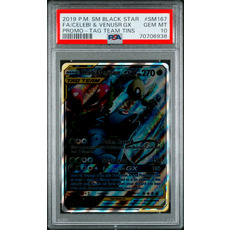
An In-Depth Look at Card Grading
If you’re new to card grading or collecting in general, you may have some questions about the overall grading process. Stick with me while I explain in detail the whole process from deciding to grade a card to getting your now-graded card returned to you!
The first questions asked are “What is card grading?” and “What is my card worth?” Lucky for us, I’ve already written a couple articles about those exact topics! I recommend taking the 5 or so minutes to read both of the previous articles. I’ll leave links to them below this section to keep it simple. Being brief, you can have your cards evaluated and given a score or “grade” from 1-10. Once a card is graded, that score is locked in and will never lower. That’s why a “10” is so highly sought after. It’s the best possible grade & condition a card can have!
- Link to article: Grading Cards
- Link to article: How do I know if I should grade this card?
So, you’ve picked a card to get graded. What’s the next step?
Deciding on where you want your card graded! There are different grading companies that charge different rates for their services. The 3 premier grading companies are PSA, Beckett (BGS) and CGC. I personally prefer PSA as they have a uniform label that’s used acrossed all genres, styles and grades of cards. Beckett for example, uses different colored labels depending on the grade received. While this adds a cool factor in the higher graded cards, I find the labels to look quite tacky when displayed as a collection. That being said, my personal preference has influenced our decision to partner with PSA when it comes to submitting cards for grading. So going forward, everything I refer to will relate to PSA specifically. Forewarning, I’m going to talk about lots of numbers and prices here. If you’re not interested in cost comparisons and such, feel free to skip ahead to the next section! Click Here
What is the cost of getting a card graded by PSA?
PSA has 2 different “value” services. The first is open to everyone for $25USD per card. This is the most common service level. The second service is for PSA members only! To become a PSA member, you have to pay an annual subscription fee of $99USD a year. This unlocks the $19 grading option. Keep that in mind because it’ll become relevant later! There are more expensive options available that shorten the turnaround time on your submissions. None of these quicker services require a membership.
Now let’s talk about shipping. PSA accepts card submissions through the mail and by Fedex deliveries. If you’re in Canada, you can probably expect a shipping cost of around $15 ~ $25 depending on the size of your package. The return shipping cost is another story. As the return shipments are insured by PSA, you can expect to pay around $60USD for the return shipment. You also need to consider the 7% GST charge on PSA’s grading service when your shipment passes back into Canada through customs. You can think of it as adding 7% to the grading fee from PSA. For example; the $25USD service will actually cost you $26.75USD.
What’s the cost to submit cards through Elite4 Games?
We charge $50CDN for the first card, $40 for cards 2~4 and then $35 per card after that. This covers the shipping to and from PSA and also gives you direct access to me as a resource! I personally have around 7 years of experience sending cards in to PSA for grading. We also offer in-store appointments to go over your card collection that we charge $60/hour for. This service is totally optional but is available to anyone who wants to take a really in-depth look at their cards. We’ll go over raw vs graded values, what kind of condition each card is in and we’ll do a pre-grade check on everything before you decide which cards you send in to PSA. I won’t include this service in the cost comparison as it’s not really part of the grading process.
We’ll do some cost comparisons based on the current USD ~ CAD conversion rate. In the box below, enter the number of cards you want to submit for grading. You can change this as much as you want. The calculations will update based on the number you enter!
Enter the number of cards here
Not a PSA Member: [25(x) + 60] x ? (estimated conversion rate of USD ~ CDN) + 15
Your total cost to send your cards in to PSA yourself without a membership is $?
This comes out to a cost per card of $?
Keep in mind, this is a hypothetical using the current conversion rate and the assumption that the shipment to PSA costs $15. These rates will fluctuate but it should be accurate enough to work with.
Next, let's look at the price difference if you pay for the annual membership in order to get the cheaper grading service.
PSA Membership: [99 + 19(x) + 60] x ? + 15
In order to qualify for this cheaper option, you must pay the $99 annual membership fee, and have at least 20 cards to send in. Any amount of cards less than 20 will result in “N/A” as this option is not available for smaller submissions.
After purchasing a membership and using the bulk value service, your total submission cost is $? and you have a final cost per card of $?.
So you can see that the more cards you send in through this service, the cheaper your cost per card becomes. It can even become cheaper than sending your cards in through us, though it does require you to send in a lot of cards in a single submission.
Averaged Out Elite4 Games Price: $? per card
Your total grading fee is $?
The more cards we send in, the more we’re able to spread that shipping & membership fee out to reduce our cost per card. That’s why we’re able to offer these prices on submissions. We send in a lot of cards!
Your cards are at PSA, what are the steps they take there?
PSA has an 8-step process from beginning to end. Let’s go over them now!
- Step 1) Arrival – The submission arrives at PSA
- Step 2) Order Prep – The submission is reviewed and verified then logged in the system to prepare for processing
Side note: steps 1 & 2 usually happen within an hour of each other. There typically isnt any notifications until Step 3 below
- Step 3) Research & ID – This is the “waiting room” that the submission sits in before the cards are ready to be graded. PSA will cross reference their database to make sure that they’re grading the cards written on the submission form. This step is crucial because it catches any mistakes entered on the submission and ensures that the PSA labels have accurate information. This step is also where autographs are researched and comparitive pieces are provided for the graders to match and authenticate in the next step.
- Step 4) Grading – The main event! The cards are graded and evaluated based on 4 primary critera; Surface, Edges, Corners & Centering. I’ve written more details on these criteria and provided an example on my previous article: Should I Grade This Card? PSA is often touted as being more lenient with their grades, but I believe that’s more so because they use the total average value of each criteria. For example, if your card would have a 10 in Centering, Surface & Edges, but there’s a mark on one of the corners making it a 9, your card could still get a 10 as the average value is 9.75. With Beckett for example, this card would end up as a 9.5 instead. Now this is pure conjecture as it has never been confirmed, but in my experience, I’ve seen a few cards that were definitely graded higher than I would’ve expected.
- Step 5) Assembly – Labels are printed and each card is soncially sealed in PSA’s acrylic holder. These holders are commonly referred to as slabs. These labels and slabs are the main reason I prefer PSA to other grading companies. Here’s a side-by-side of 2 PSA labels, 1 of which is a 10 and the other is a 5. As you can see, they have the same uniform look and go well together as part of a collection.

- Step 6) QA Check 1 – Grades are reviewed for a second time. PSA will have a different grader go over the grades to help prevent bias and ensure consistency in the results.
- Step 7) QA Check 2 – The labels are checked over to make sure there aren’t any errors. The holders are also examined for any defects. Typically, the overall QA process takes a day or two. If there are any issues found, this process can take much longer depending on what error is found. A grading error could result in extra week or two delay as the card(s) would have to be re-graded. If your submission is stuck at the QA Check, don’t worry! PSA is just making sure your cards are returned with accurate grades and labels.
- Step 8) Shipping – The cards are scanned and entered into PSA’s database before being packed up and shipped back. The card grades are released and posted online. If you submit your cards through Elite4 Games, your grades can be accessed through a clickable link on the Ongoing Submissions Sheet. A tracking number is provided by PSA so you can follow the return shipment back to you. For cards submitted through us, we will give you a call/email when your cards have arrived back at our store.
And that’s all there is to it!
Hopefully you have a better understanding of the whole card grading process now. Like with anything, if you have any questions feel free to contact us through this site, Facebook or even Discord! I’ll include some useful links to PSA’s website and our own page dedicated to PSA submissions.
- PSA’s Grading Prices: https://www.psacard.com/services/tradingcardgrading
- Our page for Card Submissions: https://www.elite4games.com/PSA-Submissions


